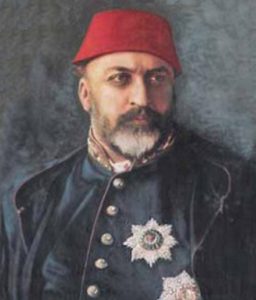In the annals of Baha’i history, the poignant narrative encapsulated in “The Prisoner Admonishes the Kings” offers profound insights into the nature of revelation, governance, and the imperative of moral rectitude. This particular story, steeped in layers of meaning, emerges from the life of Baha’u’llah, the founder of the Baha’i Faith, who beckoned leaders of nations towards a higher moral order. The tale serves as both a warning and an admonishment, encapsulating the essential teachings of the Faith through vivid metaphors and powerful imagery.
The term “prisoner” is replete with significance in the Baha’i context. Baha’u’llah, who experienced various forms of imprisonment throughout his life, symbolizes not merely physical confinement but the larger imprisonment of the human spirit when shackled by ignorance and prejudice. This metaphorical prison becomes a canvas upon which the teachings of Baha’u’llah are painted—a reminder of the necessity of freedom, both spiritual and political. Through this lens, we begin to understand that the admonitions directed at kings and rulers are not only critiques of governance but also invitations to uplift the human condition.
One salient aspect of this story is the juxtaposition between tyranny and justice, which serves as a clarion call for ethical leadership. The admonishment Baha’u’llah directed towards kings is a profound commentary on the responsibilities inherent in positions of power. It asserts that authority carries with it a sacred obligation to prioritize the welfare of the governed, advocating for justice as the cornerstone of governance. In this context, one cannot help but reflect on the metaphor wherein power, untempered by virtue, becomes an instrument of malevolence rather than a means for communal upliftment.
As the story unfolds, it becomes evident that the distance between the “prisoner” and the “kings” is not merely geographical but inherently ethical. Baha’u’llah, residing in a place of physical confinement, paradoxically occupies a position of moral superiority, illuminated by the light of divine revelation. His role as the messenger of God casts a stark contrast against those in power who forsake their responsibilities. Herein lies a critical inquiry: how can those wielding authority achieve genuine leadership without moral compass and spiritual insight? This question remains resoundingly relevant, prompting introspection among contemporary leaders across the globe.
The admonitions of Baha’u’llah were not offered in a spirit of animosity; rather, they were articulated out of a profound love for humanity. This theme of love is meticulously interwoven throughout Baha’i teachings, asserting that the true essence of leadership emanates from altruism. The message is clear: the rulers must cultivate a love for their subjects, nurturing an environment where justice reigns supreme. This embodies a revolutionary approach to governance, wherein leaders are reminded that their legitimacy derives not from the imposition of power but from their benevolent actions and considerations for the populace—a revolutionary paradigm indeed.
The imagery of the “prisoner” also invites reflection on perseverance in the face of adversity. Baha’u’llah’s own journey is characterized by resilience, underscoring the significance of steadfastness in the pursuit of justice and truth. His predicament illuminates the timeless truth that goodness often encounters formidable opposition. This implicit lesson serves as an encouragement for individuals, particularly those in positions of influence, to remain steadfast in their convictions, resisting ephemeral temptations that seek to divert focus from higher ideals.
A unique appeal of this narrative lies in its ability to resonate with diverse audiences. The admonition to kings transcends cultural and historical boundaries, positioning Baha’u’llah not only as a prophetic figure but also as a universal advocate for moral integrity. In this light, the teachings espoused by Baha’u’llah emerge as a clarion call for all humanity, encouraging a collective response towards equitable governance and the fostering of divine virtues. It elicits an inherent understanding that humanity, irrespective of societal status, shares a collective responsibility toward unearthing justice in all its forms.
To engage fully with the implications of Baha’u’llah’s admonitions is to embark on a journey towards self-examination. How do we, as a society, weigh the actions of our leaders? Are we complicit in enabling tyrannical behaviors through silence or complacency? The teachings require individuals to become active participants in shaping the moral fabric of authority, acknowledging that each voice contributes to the collective consciousness that influences governance.
In conclusion, “The Prisoner Admonishes the Kings” serves not merely as a historical account but as a resounding metaphorical framework through which the essential teachings of the Baha’i Faith are elucidated. Through its exploration of love, justice, and moral responsibility, this narrative invites all to consider their roles within the broader societal structure. The call to action is not just limited to rulers but extends to every individual, fostering a culture where justice and ethical integrity prevail. As we reflect upon this story, we should strive towards a higher standard of existence, embodying the virtues expounded by Baha’u’llah and fostering a world illuminated by granted wisdom and moral rectitude.
